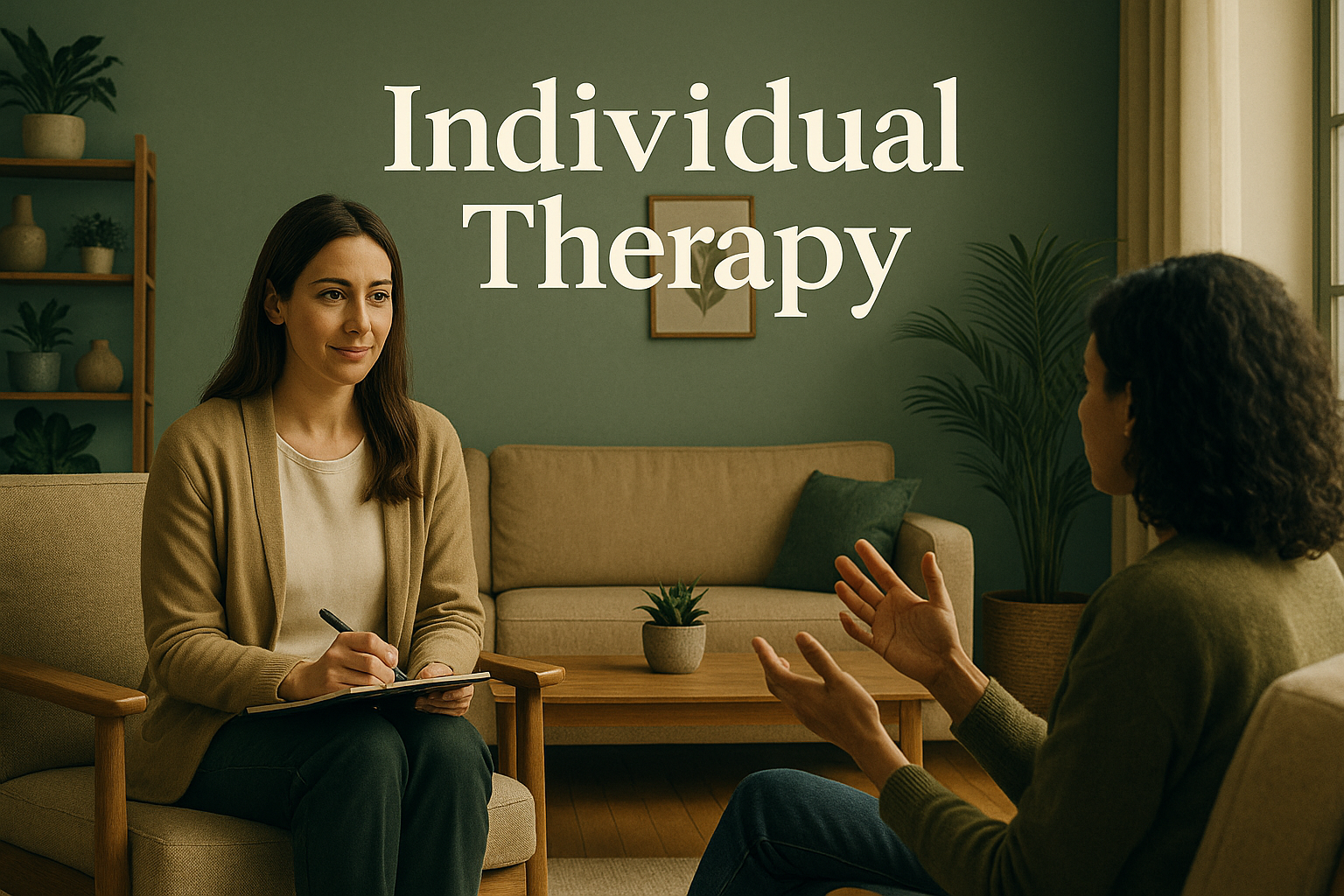Individual Therapy
🌿 Individual Therapy: A Space to Grow, Heal, and Reclaim Your Life
Life doesn’t come with a guidebook—but therapy can help you find your way through.
Individual therapy offers a safe, one-on-one space where you can explore your thoughts, feelings, and experiences with the support of a trained mental health professional. Whether you’re facing a specific struggle or simply want to better understand yourself, therapy is a powerful tool for healing, growth, and lasting change.
💬 What Is Individual Therapy?
Individual therapy is a personalized process that centers on you—your story, your goals, and your pace. Sessions typically last 45–60 minutes and focus on helping you understand what’s working in your life, what’s not, and how to move forward in a way that feels more aligned and empowering.
You and your therapist work together to explore patterns, build coping skills, and reconnect with the version of you that feels most authentic and strong.
🌱 Why People Start Therapy
Everyone’s journey is different, but here are some common reasons people begin therapy:
Anxiety, depression, or mood concerns
Stress from work, relationships, or big life changes
Grief or past trauma that still feels present
Low self-esteem or confidence struggles
Conflict or communication challenges in relationships
Personal growth or figuring out what’s next in life
🧠 What to Expect in Individual Therapy
Therapy isn’t just about talking—it’s about learning, experimenting, and growing. Here’s what the process often includes:
Building Trust
You’ll start by getting to know your therapist and building a space where you feel safe, heard, and supported.
Gaining Insight
Together, you’ll explore thoughts, emotions, and patterns that may be keeping you stuck.
Learning New Tools
Your therapist will teach practical strategies to help you manage stress, set boundaries, express yourself, and stay grounded.
Making Real-Life Changes
You’ll begin to apply what you’ve learned—at your own pace—so you can start feeling more in control and aligned with your values.
🛠️ Types of Therapy You Might Experience
Therapists may use different approaches based on your needs. Here are some you might encounter:
CBT (Cognitive Behavioral Therapy): Helps you shift unhelpful thoughts and behaviors
DBT (Dialectical Behavior Therapy): Focuses on emotion regulation and mindfulness
EMDR Therapy: Supports healing from trauma and distressing memories
Psychodynamic Therapy: Explores the past to understand the present
Humanistic Therapy: Encourages personal growth and self-acceptance
Solution-Focused Therapy: Builds momentum around your strengths and goals
🌟 How Therapy Can Change Your Life
Therapy isn’t just about coping—it’s about transformation. Some of the many benefits include:
Feeling more emotionally balanced and mentally clear
Better relationships through communication and boundary skills
Increased self-confidence and a stronger sense of identity
More effective coping tools to navigate life’s stressors
A deeper connection to your purpose, values, and potential
🙌 Who Is Therapy For?
Everyone. You don’t need to be in crisis to benefit from therapy. Whether you’re navigating grief, burnout, life transitions, or just feeling disconnected from yourself—therapy can help you reconnect, refocus, and rediscover your strength.
🚀 Ready to Start?
Find the right therapist: Someone who gets you and specializes in what you’re going through.
Set your intentions: You don’t need to have it all figured out—just a willingness to explore.
Show up for yourself: Real change takes time, but every session is a step toward healing and clarity.
✨ You Deserve to Feel Whole
Individual therapy is more than support, it’s a partnership in your growth.
It’s a space where you get to put down the pressure, unpack what’s weighing on you, and build a life that feels like yours.
You don’t have to go through it alone—and you don’t have to stay stuck.

